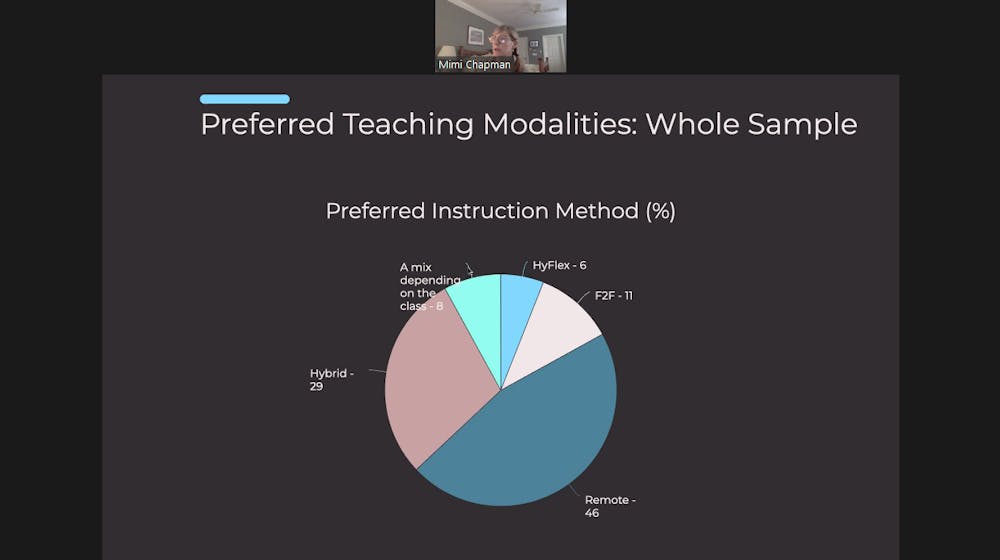The Faculty Executive Committee, Chancellor Kevin Guskiewicz and other University leaders met Monday to discuss faculty concerns about teaching in the fall and the ethics of UNC’s re-entry plan.
Mimi Chapman, professor of social work and associate dean of doctoral education in the School of Social Work, presented results from a survey sent to voting members of the faculty about returning to teach in the fall. The survey, which was open from June 3 to June 10, recorded 1,263 responses with a 34 percent response rate.
The five categories of comparison included: whole sample, total fall undergraduate instructors, fall undergraduate tenured or tenured track instructors, fixed term fall undergraduate instructors and faculty age 60 or older teaching in the fall.
Chapman said among respondents, remote teaching was the preferred method of instruction, with 46 percent of responses, and a hybrid method was the next most popular, with 29 percent of responses.
Chapman said a key takeaway from survey results was that faculty would like to hear more from health experts and University leaders on the Roadmap for Fall 2020.
“The science is evolving; that’s a given,” Chapman said. “And faculty need much more detailed information.”
Executive Vice Chancellor and Provost Bob Blouin, who has been announced as the executive director of the Roadmap for Fall 2020, said he will begin releasing communication every Thursday to faculty, staff and students about updates to the Roadmap.
The survey also showed that respondents were more accepting of hybrid teaching models than traditional classroom teaching, and most respondents felt comfortable negotiating with their respective chairperson or dean about teaching decisions.
There were over 400 comments from survey respondents that will be organized and reported on in the future, Chapman said.




